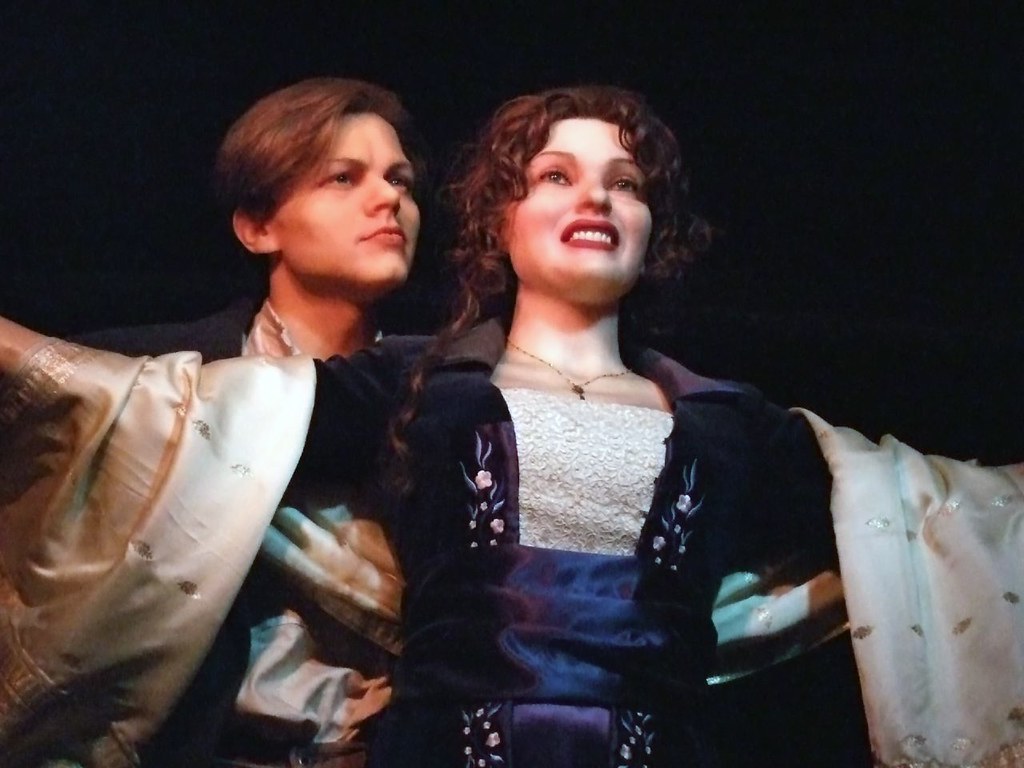
In the dazzling, often unpredictable realm of Hollywood, a single decision can redefine a career, reshape cinematic history, or spark endless “what if” discussions among fans and critics alike. The stories of actors turning down roles that later became iconic are a fascinating testament to the intricate dance of timing, personal vision, and contractual obligations that underpins the industry. It’s a world where the paths not taken often lead to equally compelling narratives, both for the actors who said “no” and for those who ultimately said “yes.”
Every film lover has a favorite character, a performance so deeply embedded in their memory that it’s almost impossible to imagine anyone else in the role. Yet, a surprising number of these legendary parts were initially offered to different stars. From sci-fi epics that redefined genres to beloved romantic comedies and gritty dramas, the tapestry of cinema is woven with threads of choices made and opportunities foregone. These decisions, made by seasoned veterans and rising talents alike, offer a unique glimpse into the complex considerations that shape an actor’s journey.
Join us as we delve deep into the annals of cinematic history, exploring the pivotal moments when some of the most recognizable faces in entertainment chose to pass on roles that would become global phenomena. We’ll uncover the reasons behind their rejections, the immediate impact these decisions had, and how, in many cases, their careers continued to flourish, proving that in Hollywood, a missed opportunity can often be a stepping stone to an equally successful, albeit different, destiny. This journey will illuminate the strategic thinking, personal convictions, and sheer happenstance that contribute to the making of a classic.
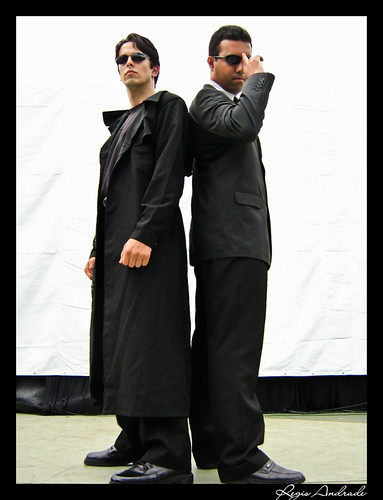
1. **Will Smith as Neo in *The Matrix***
It’s almost impossible to envision anyone other than Keanu Reeves as Neo, the stoic, leather-clad protagonist of *The Matrix* trilogy. His portrayal became a pop culture touchstone, launching one of the most influential sci-fi franchises in cinematic history. However, this genre-defining role was initially extended to Academy Award winner Will Smith, presenting a truly fascinating “what if” scenario for fans of dystopian science fiction and offering a vastly different, alternate-reality vision of the film.
Smith’s decision to decline the role stemmed from his admitted struggle to fully grasp the script’s intricate and complex thematic elements and its ambitious vision at the time. Opting for a different blockbuster endeavor, Smith instead chose to star in the 1999 steampunk western *Wild Wild West*, which, despite its high budget, did not achieve the critical or commercial success of *The Matrix*. Looking back, Smith has humorously, and perhaps genuinely, expressed regret over his decision, even suggesting he “would have ruined it,” deferring to Reeves’s undeniable suitability for the part.
Despite passing on a role that became a cultural phenomenon, Will Smith’s career trajectory remained remarkably illustrious. He continued to headline a string of major hits, showcasing his versatility across genres, and ultimately achieved critical acclaim and an Oscar. His experience highlights the delicate balance actors must strike between script comprehension, personal vision alignment, and the sheer timing involved in an industry where one’s choices can lead to wildly divergent, yet still successful, paths.
Read more about: From Hollywood to the Highway: Inside Keanu Reeves’ Motorcycle Obsession and How It Shaped His Life
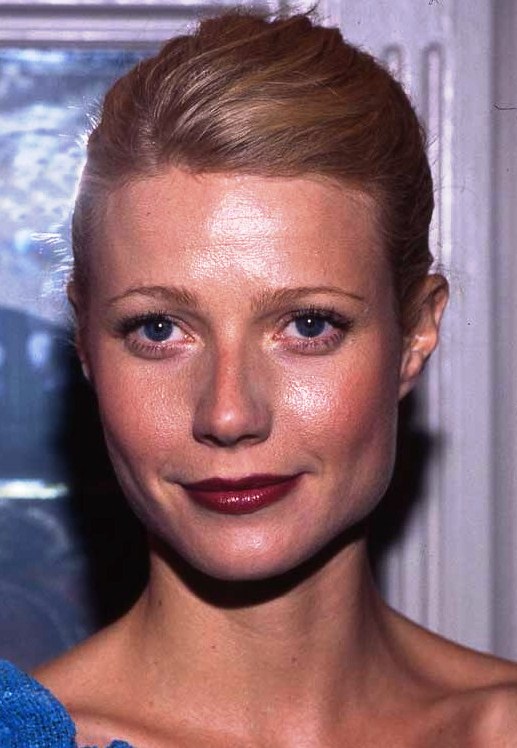
2. **Gwyneth Paltrow as Rose in *Titanic***
Before Kate Winslet’s indelible performance as Rose DeWitt Bukater captured hearts and became synonymous with James Cameron’s record-breaking epic *Titanic*, another prominent actress was offered the iconic leading role: Gwyneth Paltrow. It’s hard to imagine anyone else delivering Rose’s blend of defiance, vulnerability, and passion alongside Leonardo DiCaprio’s Jack Dawson, but for a period, Paltrow was a strong contender for the part that would define a generation of cinematic romance.
Paltrow’s decision to pass on the opportunity was primarily influenced by her focus on other professional commitments and her admitted failure to anticipate the monumental success *Titanic* would achieve. This candid glimpse into an actor’s decision-making process underscores the inherent challenge of predicting a film’s future impact. Her choice, driven by these factors, created the opening for Kate Winslet to step into the spotlight, delivering a nuanced performance that resonated globally and launched her into superstardom.
Despite missing out on the *Titanic* phenomenon, Paltrow’s career trajectory remained robust and highly successful. Just a year after *Titanic* premiered, she won an Academy Award for Best Actress for her role in *Shakespeare in Love*, solidifying her standing as a respected and sought-after talent. This example powerfully illustrates that while missing a record-breaking hit can be a significant “what if,” an actor’s overall success and legacy are shaped by a constellation of choices, and often, trusting one’s own career path proves to be a rewarding strategy.
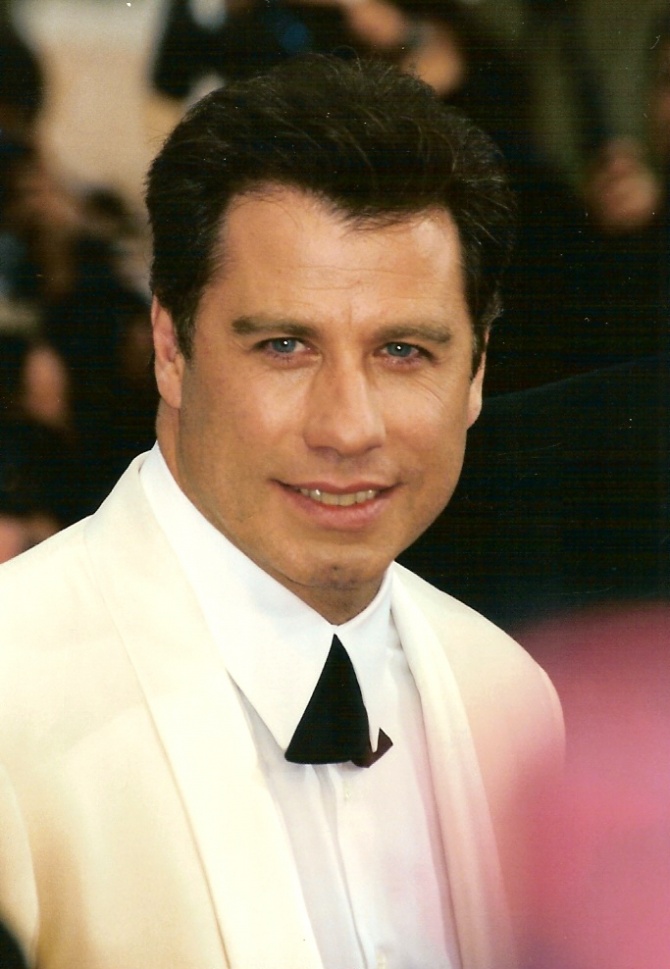
3. **John Travolta as Forrest Gump in *Forrest Gump***
The titular character of *Forrest Gump* is intrinsically linked with Tom Hanks’s masterful, Oscar-winning portrayal, which brought to life the simple yet profound journey of a man navigating pivotal moments in American history. However, the role that would become one of the most beloved and celebrated in modern cinema was initially offered to John Travolta, presenting a remarkable crossroads in his illustrious career and a fascinating alternate vision for this iconic Best Picture winner.
Travolta’s decision to pass on *Forrest Gump* wasn’t a matter of disinterest, but rather a strategic career move that ultimately led him down a different, equally iconic path. Instead of running through history with Hanks, Travolta opted to star in Quentin Tarantino’s groundbreaking crime film *Pulp Fiction*. This choice proved pivotal, as *Pulp Fiction* not only revitalized Travolta’s career but also showcased his versatility, earning him an Academy Award nomination and restoring his luster as a leading man.
In a testament to his clear vision, Travolta has openly expressed no regrets about his decision, recognizing that while Tom Hanks embodied Forrest Gump to Oscar-winning acclaim, his own choice for *Pulp Fiction* in the same year was equally rewarding. This scenario beautifully illustrates how the entertainment industry often presents actors with multiple paths to success, proving that turning down one classic can, surprisingly, open the door to another, equally transformative opportunity, driven by personal artistic passion.
Read more about: Why 1994 Was Arguably the Greatest Year in Cinema History: A Deep Dive into its Unforgettable Films

4. **Michelle Pfeiffer as Vivian Ward in *Pretty Woman***
The enchanting Cinderella story of Vivian Ward, the spirited escort who captures the heart of a wealthy businessman, became a global romantic comedy sensation with Julia Roberts’s iconic performance in *Pretty Woman*. Roberts’s radiant smile and undeniable chemistry helped define a genre and establish her as Hollywood’s sweetheart. Yet, this beloved role, a benchmark for romantic leads, was first offered to the acclaimed actress Michelle Pfeiffer, making her initial hesitation a key moment in rom-com history.
Pfeiffer’s decision to decline the lead in *Pretty Woman* stemmed from her reservations about the film’s underlying themes. While the movie ultimately evolved into a heartwarming modern fairy tale, the initial script reportedly carried a darker, more gritty tone that did not align with Pfeiffer’s artistic preferences or personal comfort zone. This highlights the crucial aspect of an actor’s integrity and the importance of selecting projects that genuinely resonate with their values.
Her choice, driven by a commitment to projects she felt connected to, created a vacuum that Julia Roberts triumphantly filled, catapulting her to international stardom. Michelle Pfeiffer’s career, far from suffering, continued to flourish with critically acclaimed performances across various genres. Her sustained success underscores the notion that no single role, however iconic, defines an actor’s entire body of work, but rather it’s a cumulative journey of choices where prioritizing personal and artistic alignment often leads to a rich and meaningful career.
.jpg/440px-Sean_Connery_(1983).jpg)
5. **Sean Connery as Gandalf in *The Lord of the Rings***
The wizard Gandalf, with his iconic staff, flowing grey beard, and booming voice, is an unforgettable figure in cinematic fantasy, brought to life with profound gravitas by Sir Ian McKellen in *The Lord of the Rings* trilogy. McKellen’s performance is so deeply ingrained in the collective consciousness that it’s challenging to imagine anyone else. Yet, remarkably, the role of Gandalf the Grey was initially offered to another legendary British actor, the incomparable Sir Sean Connery.
Connery’s primary reason for declining the part was a fundamental lack of comprehension of the script; he simply “did not get it,” struggling to connect with the complex narrative and the intricate world of Middle-earth. This candid admission highlights a significant challenge actors often face: deciphering potentially groundbreaking material that might seem unfamiliar or abstract at first glance, and the inherent risk-reward calculation in committing to such an undertaking within an epic fantasy world.
This decision by Connery opened the door for Ian McKellen, who seized the opportunity to embody the beloved wizard, earning widespread critical acclaim and an indelible place in cinematic history. Despite his later reflections of some regret, Connery’s formidable legacy as a film icon remained utterly untarnished, proving that while missing a role in a multi-billion-dollar franchise can be a significant “what if,” a well-established career can withstand such decisions, demonstrating that an actor’s overall impact is not solely defined by accepted opportunities.

6. **Emily Blunt as Black Widow in *Iron Man 2***
The cunning and formidable Natasha Romanoff, famously known as Black Widow, became one of the foundational pillars of the Marvel Cinematic Universe, expertly portrayed by Scarlett Johansson across numerous blockbuster films. Johansson’s seamless integration into the Avengers lineup made her a fan-favorite, defining the character for a global audience. However, the role that launched Black Widow into the MCU was originally slated for the talented British actress, Emily Blunt, creating a compelling “what if” for Marvel enthusiasts.
Blunt was, in fact, initially cast as Black Widow for her debut in 2010’s *Iron Man 2*, but her withdrawal stemmed from an unavoidable clash of professional obligations. She was contractually bound to appear in the adaptation of *Gulliver’s Travels*, a commitment that regrettably prevented her from taking on the pivotal MCU role. This situation is a common, if unfortunate, reality in Hollywood, where pre-existing contracts often dictate an actor’s availability, sometimes redirecting significant career paths.
The necessity for Blunt to step aside opened the door for Scarlett Johansson, who quickly made the role her own, establishing Black Widow as a key figure in the MCU. Despite missing out on originating such a significant role within one of the most successful film franchises, Emily Blunt has carved out a remarkably diverse and successful career in a wide range of films. Her journey underscores the essential quality of adaptability in the entertainment industry, proving that even major opportunities can lead to an impressive and impactful filmography through other avenues.
Read more about: 6 A-List Actors Who Somehow Haven’t Joined the Superhero Universe (Yet)
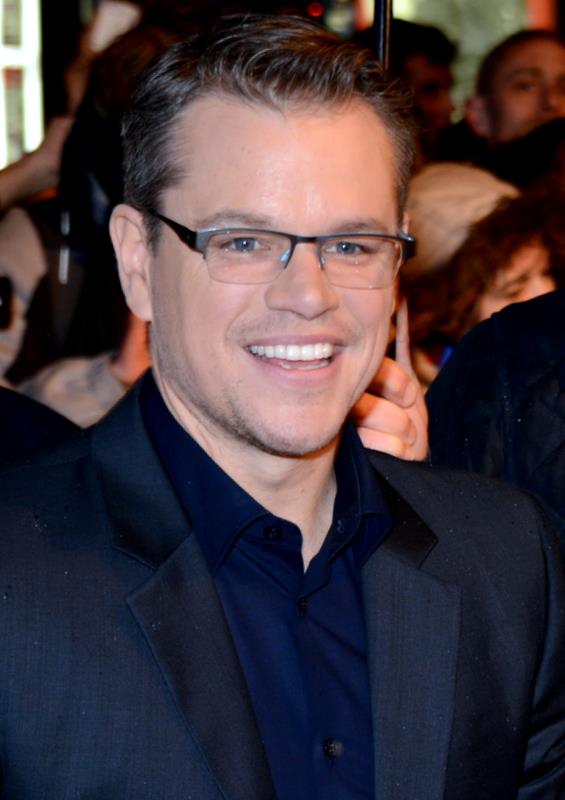
7. **Matt Damon as Jake Sully in *Avatar***
James Cameron’s *Avatar* redefined cinematic technology and storytelling, becoming one of the highest-grossing films of all time, largely propelled by Sam Worthington’s performance as the human-turned-Na’vi protagonist, Jake Sully. Worthington’s portrayal of the conflicted marine navigating Pandora is now synonymous with the film’s groundbreaking legacy. Yet, the leading role in this monumental sci-fi epic was originally offered to a major Hollywood star, Academy Award winner Matt Damon.
Damon’s reason for declining the part was straightforward but significant: prior professional commitments. Faced with James Cameron’s enticing offer, Damon ultimately had to pass, prioritizing existing projects that were already in development. This situation perfectly encapsulates the difficult choices actors often confront, balancing the allure of a potentially groundbreaking film with the responsibility of honoring established commitments, a common dilemma in the tightly scheduled world of big-budget productions.
Damon’s decision opened the door for Sam Worthington, who, as Jake Sully, became a household name overnight. Despite passing on a role that would lead a film to historic box office numbers, Matt Damon’s career continued to flourish remarkably, solidifying his status as a leading man with critically acclaimed performances in the *Bourne* series and *The Martian*. His story serves as a powerful reminder that while some opportunities might be missed, a talented actor can achieve immense success and lasting impact through many different, equally valid, career paths.

8. **Angelina Jolie as Ryan Stone in *Gravity***
Before Sandra Bullock delivered her Oscar-winning, emotionally resonant performance as Dr. Ryan Stone, the astronaut adrift in the vast emptiness of space in Alfonso Cuarón’s visually stunning masterpiece *Gravity*, another colossal talent was considered for the role: Angelina Jolie. The thought of Jolie navigating the terrifying isolation and technical prowess required for the part certainly paints an interesting alternate picture for this critically acclaimed film. This initial consideration reveals the caliber of actresses studios envisioned for such a demanding and singular role.
Jolie’s decision to ultimately pass on *Gravity* stemmed from a combination of scheduling conflicts and creative differences. In Hollywood, the intricate dance of an actor’s calendar often dictates their availability for potentially groundbreaking projects, and such pre-existing commitments can regrettably steer careers in different directions. Furthermore, an actor’s personal alignment with a film’s creative vision is paramount, and differing perspectives can lead to a mutually agreed-upon parting of ways, even from a project as ambitious as *Gravity*.
Her choice ultimately opened the door for Sandra Bullock, whose intense and vulnerable portrayal earned her immense praise and cemented her legacy as a dramatic actress of significant depth. Yet, despite missing out on a role that garnered so much acclaim, Angelina Jolie’s career continued to flourish remarkably. She consistently took on diverse roles, further showcasing her versatility, and expanded her talents into directing films, demonstrating a robust and evolving professional journey.
Jolie’s experience stands as a powerful testament to the idea that while some opportunities might be missed due to practicalities or artistic preferences, a talented actor’s path remains rich with possibilities. Her story affirms that other significant roles and creative endeavors will inevitably align, offering new and compelling avenues for continued success and artistic expression, irrespective of the paths not taken.
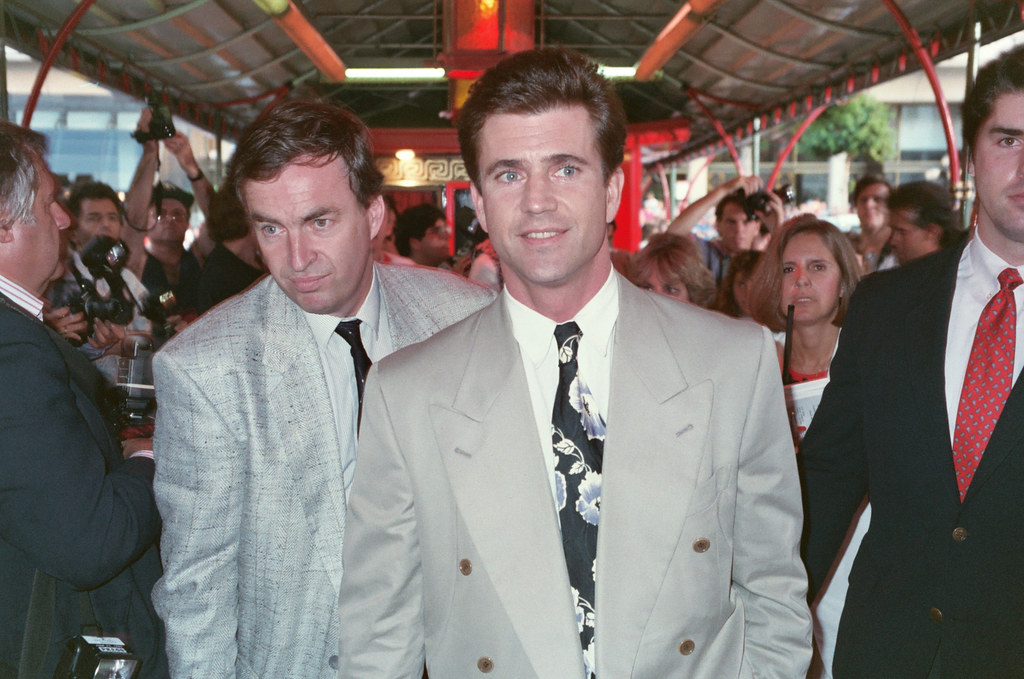
9. **Mel Gibson as the Lead Role in *Gladiator***
When Ridley Scott’s *Gladiator* thundered onto screens, it reignited the epic historical drama genre and delivered an unforgettable performance from Russell Crowe as the vengeful Roman general, Maximus Decimus Meridius. Crowe’s portrayal became iconic, earning him an Academy Award and making him a global superstar. However, this legendary role was initially eyed by another powerhouse talent known for his intense on-screen presence and command of epic narratives: Mel Gibson.
Gibson, a respected actor and director with a strong track record in historical action, was considered for the lead role but ultimately passed on the opportunity. His decision was influenced by reported concerns about the film’s initial direction and, significantly, his burgeoning interest in focusing more on his directorial ambitions. This highlights a common crossroads for many seasoned actors, where the desire to control the creative process from behind the camera can outweigh the allure of starring in a major production.
His choice created the perfect stage for Russell Crowe to step into the role, delivering a performance that resonated deeply with audiences and critics alike, earning him cinema’s highest honor. Despite stepping back from a part that became synonymous with a generation, Gibson’s career continued its impressive trajectory, marked by both acting successes and his increasingly prominent and often controversial work as a director. This included acclaimed films he helmed himself, such as *The Passion of the Christ*.
This insight into Gibson’s career choices vividly underscores the profound importance of creative integrity and personal artistic growth. It demonstrates that an actor’s professional journey is not solely defined by the roles they accept, but also by their discernment in prioritizing projects that truly align with their evolving interests, even when it means foregoing high-profile acting opportunities.

10. **Denzel Washington as the Detective in *Se7en***
David Fincher’s *Se7en* remains a benchmark for gritty, dark crime thrillers, with Brad Pitt delivering a memorable performance as the hot-headed Detective David Mills, whose journey into the macabre world of a serial killer is both horrifying and unforgettable. While Pitt’s chemistry with Morgan Freeman and his raw intensity made the character iconic, this pivotal detective role was initially offered to none other than the esteemed Denzel Washington, presenting a fascinating “what if” in the realm of modern cinematic suspense.
Washington’s decision to turn down the detective role was rooted in his significant concerns about the film’s profoundly dark and disturbing tone. As an actor known for powerful, often morally upright characters, the grim and bleak narrative of *Se7en* evidently did not align with his personal preferences or the types of projects he sought to be involved in at that point in his career. This illustrates the critical importance of an actor’s emotional and thematic connection to a script.
His choice, driven by these personal reservations, ultimately cleared the way for Brad Pitt to step into the role, a performance that not only contributed significantly to the film’s iconic status but also showcased a more dramatic and intense side of the young star. Despite passing on a film that achieved immense critical and commercial success, Denzel Washington’s career has consistently flourished, marked by numerous awards, including multiple Academy Awards, and a string of critically acclaimed and popular films.
Washington’s enduring success is a powerful demonstration of the significance of selecting roles that resonate personally and align with one’s artistic vision. It proves that in a demanding and competitive industry, an actor’s integrity in choosing projects based on their values can lead to a consistently rewarding and highly respected career, regardless of a few missed blockbusters.
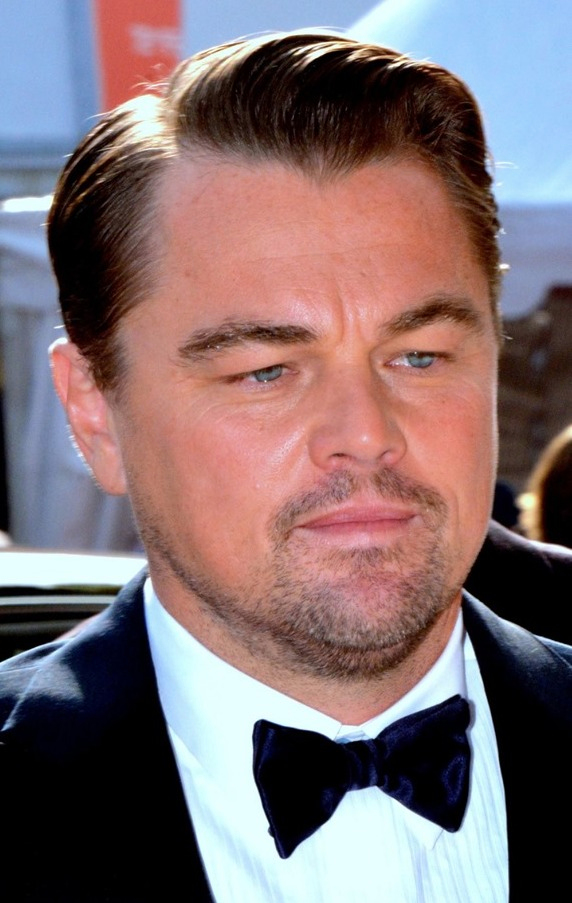
11. **Leonardo DiCaprio as Patrick Bateman in *American Psycho***
Christian Bale’s chillingly precise and darkly humorous portrayal of Patrick Bateman in *American Psycho* became a defining moment for the actor, capturing the terrifying emptiness and superficiality of the character with unsettling brilliance. His performance is now intrinsically linked to the satirical horror film. However, before Bale wielded an axe to 80s pop music, the role of the sadistic yuppie was initially attached to Leonardo DiCaprio, a consideration that would have given the film a vastly different tone.
DiCaprio was indeed slated for the part, following his massive success with *Titanic*, but he eventually withdrew from the project. His departure was primarily motivated by a desire to focus on different endeavors, specifically prioritizing the film *The Beach*. Adding another layer of intrigue, there was a rumor, as reported by The Morning Call, that Bale’s stepmom, Gloria Steinem, may have subtly influenced DiCaprio’s decision, suggesting the role might negatively impact his burgeoning romantic heartthrob reputation established post-*Titanic*.
Moreover, DiCaprio himself later conveyed to The Morning Call that he passed on playing the role because he felt the script “didn’t mean anything in the end.” This reflects a deeper artistic consideration, where the actor sought projects with more profound thematic weight. This complex decision-making process eventually paved the way for Christian Bale to step in, delivering a performance that cemented his reputation for transformative and intense roles, becoming a cult classic in the process.
Despite passing on *American Psycho*, DiCaprio’s career continued its remarkable ascent, characterized by a string of acclaimed and successful roles in films like *Inception* and *The Wolf of Wall Street*, ultimately leading to an Oscar win. His journey underscores the importance of strategic career planning and the unwavering belief that other significant opportunities will always arise, allowing a talent of his magnitude to shine brightly across a diverse and impactful filmography.
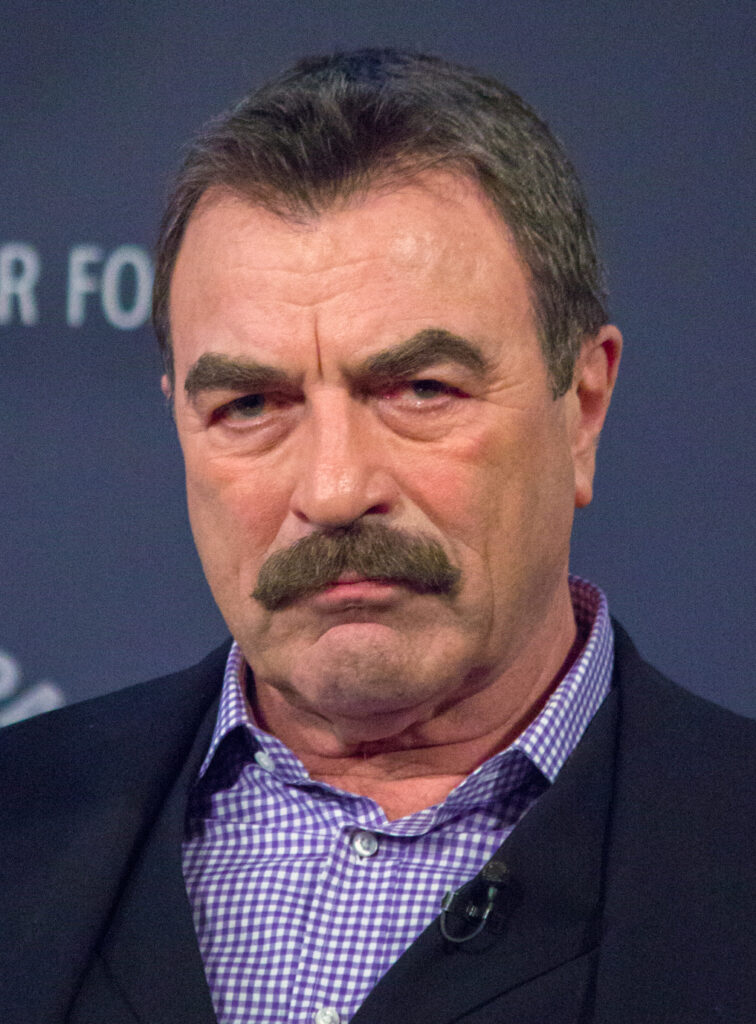
12. **Tom Selleck as Indiana Jones in *Raiders of the Lost Ark***
It’s nearly impossible to imagine anyone other than Harrison Ford cracking the whip and dodging booby traps as the iconic archaeologist, Indiana Jones. Ford’s rugged charm and adventurous spirit made the character an indelible part of cinematic history in *Raiders of the Lost Ark*. Yet, the fedora and bullwhip were originally destined for another recognizable face: Tom Selleck, presenting one of Hollywood’s most famous “what if” scenarios.
Selleck was, in fact, originally cast as Indiana Jones. George Lucas, who had previously worked with Harrison Ford three times, was initially reluctant to cast him again, opening the door for other actors. However, Selleck was forced to relinquish the coveted role due to an unavoidable, pre-existing contractual commitment to the CBS crime drama *Magnum, P.I.* As he candidly recalled on *Today*, this scheduling conflict became an insurmountable obstacle, preventing him from embarking on the cinematic adventure.
This situation perfectly illustrates the often-harsh realities actors face, where prior commitments to successful television series can directly clash with blockbuster film opportunities. It’s a tough balancing act, where one’s professional obligations in one medium can inadvertently pave the way for another actor to seize a career-defining role in another, shaping film history in unexpected ways.
Despite missing out on the chance to become one of cinema’s most beloved heroes, Tom Selleck enjoyed a tremendously successful career in both television and film, notably with *Magnum, P.I.* and numerous other projects. His experience underscores that while some significant opportunities may be lost to scheduling conflicts, a talented and dedicated actor can still carve out an equally fulfilling and celebrated career path through other, equally impactful avenues.

13. **Julia Roberts as Viola in *Shakespeare in Love***
The enchanting historical romantic comedy *Shakespeare in Love* captivated audiences and critics alike, earning Gwyneth Paltrow an Academy Award for her luminous performance as Viola De Lesseps, the muse who inspires William Shakespeare. Paltrow’s portrayal perfectly blended grace, wit, and passion, making the role her own. However, this Oscar-winning part was initially considered for one of Hollywood’s most enduring and beloved stars, Julia Roberts.
Roberts was indeed contemplated for the role of Viola, a testament to her widespread appeal and talent at the time. Yet, her ultimate decision to pass on *Shakespeare in Love* was influenced by a confluence of factors, including both scheduling issues and creative differences. The intricate dance of an actor’s calendar, coupled with the crucial need for alignment with a film’s artistic direction, often dictates which roles an actor can realistically take on, and which they must regrettably decline.
Her choice ultimately created the opening for Gwyneth Paltrow to step into the spotlight, leading to a performance that not only garnered critical acclaim but also cemented her status as a leading lady in Hollywood. Despite this, Julia Roberts remained a colossal figure in the industry, continuing to star in major Hollywood productions. Her work in films like *Erin Brockovich*, for which she also won an Academy Award, and *Pretty Woman* further solidified her iconic status.
Julia Roberts’s story powerfully underscores the idea that missing one significant opportunity can frequently lead to others, allowing an actor to maintain a successful and varied career filled with iconic roles. It highlights the dynamic nature of Hollywood careers, where a combination of strategic choices and serendipitous moments ultimately defines an actor’s lasting legacy and continued relevance.
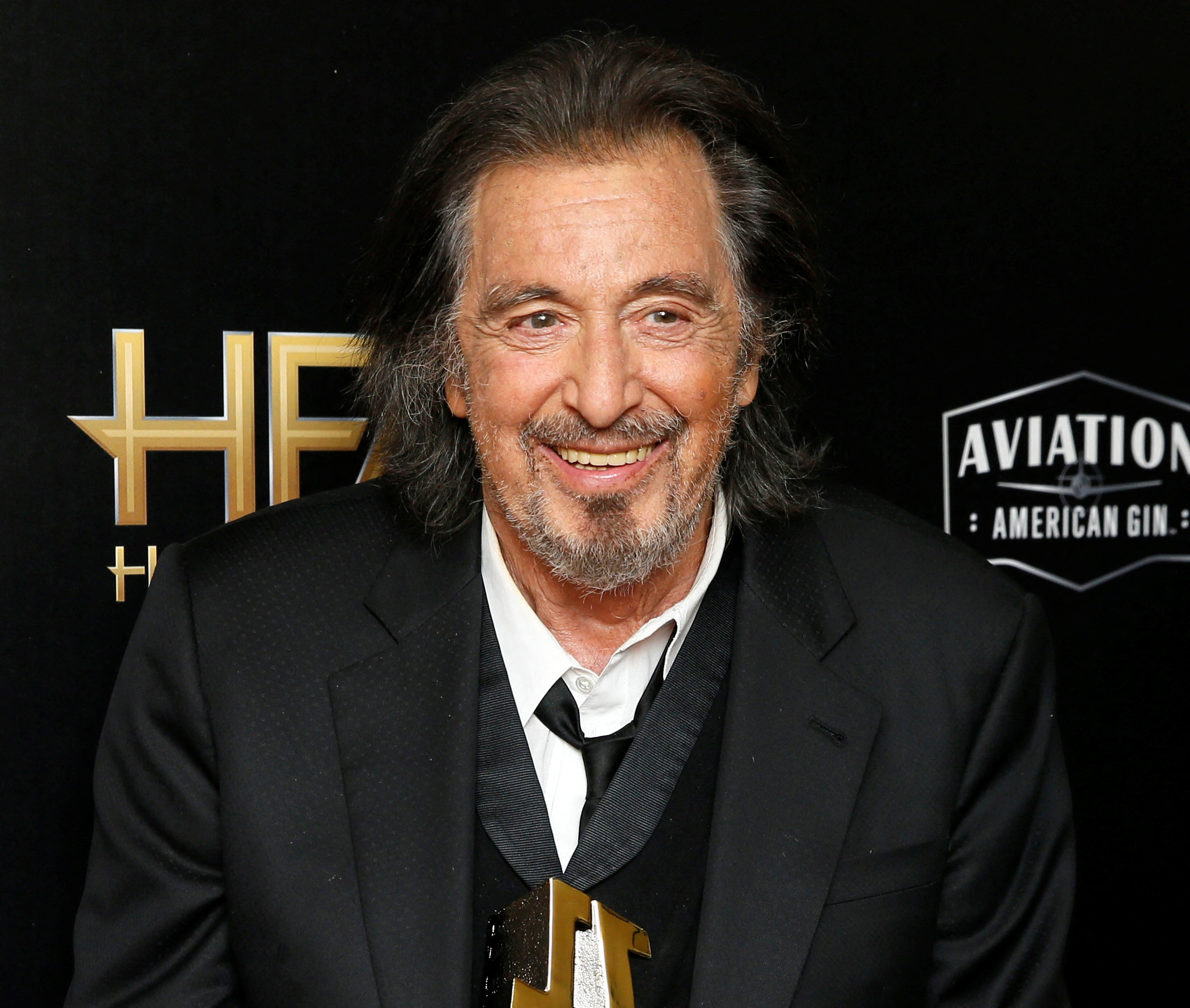
14. **Al Pacino as Han Solo in *Star Wars***
It’s a notion that stretches the imagination for many film enthusiasts: the iconic, roguish space pirate Han Solo, forever immortalized by Harrison Ford’s charismatic performance in *Star Wars*. Ford’s portrayal became a foundational element of the galaxy far, far away, defining the character for generations. Yet, incredibly, this legendary role was once offered to one of cinema’s most formidable dramatic actors, the incomparable Al Pacino, presenting a truly mind-bending alternate reality for the beloved franchise.
Pacino was indeed offered the pivotal role of the Millennium Falcon’s pilot, a testament to his burgeoning star power in the 1970s. However, as revealed in his memoir, *Sonny Boy*, Pacino ultimately declined the part. His reason was quite straightforward: he found George Lucas’s script difficult to understand. He candidly explained that he simply “could not make anything out of” the material, struggling to grasp the complex narrative and the then-unfamiliar world of science fiction that *Star Wars* was set to introduce.
This decision highlights a crucial, often overlooked aspect of an actor’s process: the need for genuine comprehension and connection with the material. Even for a talent as immense as Pacino, the abstract nature of a groundbreaking script can sometimes be a barrier, leading to a choice that irrevocably alters cinematic history and redirects career trajectories. Such moments underscore the deeply subjective nature of script interpretation.
Pacino’s decision, driven by his inability to connect with the material, paved the way for Harrison Ford to step into the role, catapulting him to international superstardom. Despite missing out on a franchise that redefined pop culture, Al Pacino’s legendary career continued its impressive run with a string of iconic roles in films like *Scarface*, *Dog Day Afternoon*, and of course, *The Godfather* saga. His incredible body of work demonstrates that turning down one role, however famous, certainly does not limit an actor’s potential for enduring greatness and a career filled with legendary performances.
From the depths of uncharted space in *Gravity* to the hallowed halls of ancient Rome in *Gladiator*, and from the gritty streets of *Se7en* to the farthest reaches of a galaxy far, far away, these stories serve as a compelling reminder of the intricate tapestry of Hollywood. Every decision, every “no,” and every path not taken contributes to the rich, unpredictable narrative of cinematic history. These actors, through their thoughtful and sometimes surprising choices, not only reshaped their own careers but also opened doors for others to deliver performances that would become indelibly etched into our collective memory. Their journeys underscore that in the world of film, success is rarely a straight line, but rather a fascinating dance of talent, timing, and personal conviction, proving that even a rejected role can lead to an equally extraordinary destiny.
Read more about: You Won’t Believe the Star Power Hiding in These 14 Movies We Totally Underestimated at the Time!



